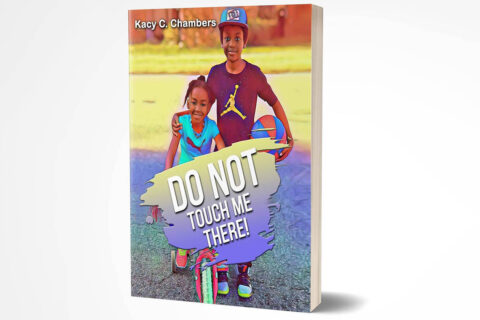 Clarksville, TN – Children’s mental health is underserved. That’s part of the reason why Kacy Chambers, an Austin Peay State University (APSU) alumna of Interdisciplinary Studies K-8, wrote two self-help books and two journals during the COVID-19 Coronavirus pandemic.
Clarksville, TN – Children’s mental health is underserved. That’s part of the reason why Kacy Chambers, an Austin Peay State University (APSU) alumna of Interdisciplinary Studies K-8, wrote two self-help books and two journals during the COVID-19 Coronavirus pandemic.

“I realized that a lot of what I went through stems from when I was younger,” Chambers said. “I didn’t have anyone to talk to, I didn’t have a book that talks about things that would have helped me understand everyday life.”
While Chambers didn’t become an elementary school teacher, she stayed involved in helping children by working as a child care instructor for pre-kindergarteners and volunteered at her church daycare.
“I still had a soft spot for children although I didn’t start working in the public school system like I thought I would,” Chambers said.
‘A better way’ to reinforce the message

Chambers wrote her first book, Do Not Touch Me There, in July 2020, to teach children about inappropriate touch. Chambers breaks down the idea that close friends, family, preachers, and teachers can assault a child. She stresses in her book that children should tell a trustworthy adult if an adult touches them or asks to be touched inappropriately.
“Children don’t know what’s right or wrong until we teach them,” Chambers said. “It dawned on me that there has to be a better way to have that message reinforced. Something children can read about on their own.”
Chambers often talks with her own children about inappropriate touching. She empowers her children to speak up if anything were to happen to them.
“We often teach ‘stranger danger,’ but we don’t teach children that sometimes the bad guy doesn’t have to be a stranger,” Chambers said.
Making Alzheimer’s, Dementia easier to understand
Chambers’s second book, Sometimes Grandma and Grandpa Forget, teaches children about loving their elders who are fighting dementia and Alzheimer’s.
“That book is very close to my heart because my family has tons of people who have had Alzheimer’s or dementia,” she said. “Both of my maternal grandparents and my dad have dementia.”
A neurodegenerative disease, dementia, and Alzheimer’s disrupt the communication between brain cells. This leads to the slow decay of lobes of the brain. It’s a complicated topic, made digestible for children by Chambers.
Chambers’ children often questioned why she treated her dad and grandparents like children. Chambers’ mother lives with her maternal grandmother and grandfather and often sits with her grandmother when her grandfather and mother leave the house.
“It was so confusing to my oldest son,” Chambers said. “He asked me, ‘She’s a grown-up, why do we talk to her that way? You explain stuff to her like she’s a child.’”
‘A place to get their emotions out’
Chambers also published two journals to give children a safe place to write about their emotions.
The first book starts with a pledge for children to always tell a grown-up if someone touches them inappropriately or asks them to do something inappropriate. It includes a safety plan for children to follow in case something bad happens.
Chambers used her own pictures for her books. She’s debating whether to hire an illustrator for her next two books or use her own pictures again. It gives the books a feeling of authenticity, seeing photographs staged around the community.
Ultimately, the two books attempt to foster a healthy relationship between children and difficult subjects. Chambers believes that these topics are difficult for parents partly because adults are overwhelmed. She believes many parents switch to auto-pilot and that allows serious topics to slip under the radar.
“Most parents are working outside of the house and they’re doing all the stuff inside the house while still trying to have a little me time, just for their own sanity,” Chambers said. “I think the other part is that we are always trying to figure out the best way to say things at an age-appropriate level for our children.”
Chambers thinks children need a tool to explore real issues. She had to educate herself about Alzheimer’s and dementia, for example, to be a better caregiver for her father and grandparents, so it was important for her to educate children in the same way.
“My oldest child has a disability. So I got to see how important mental health is,” she said. “His journey isn’t anybody else’s journey. It’s different from mine and it’s different from yours.”
You can learn more about Chambers and her books at www.authorkacychambers.com.



